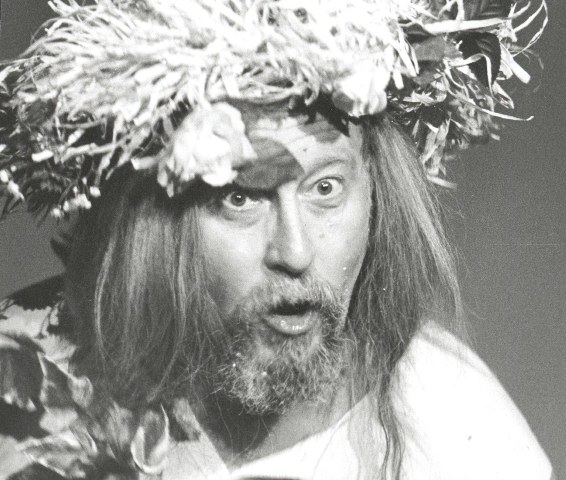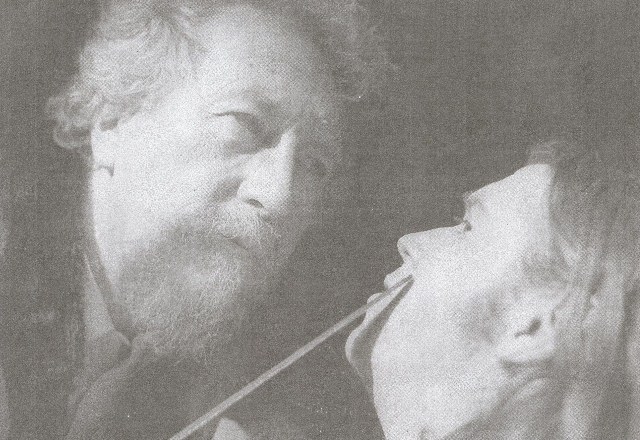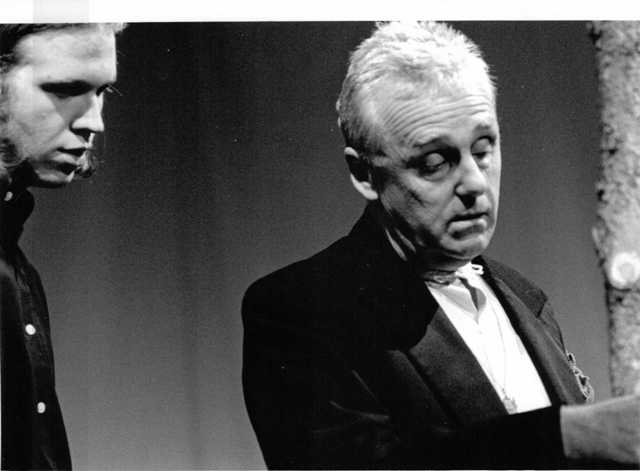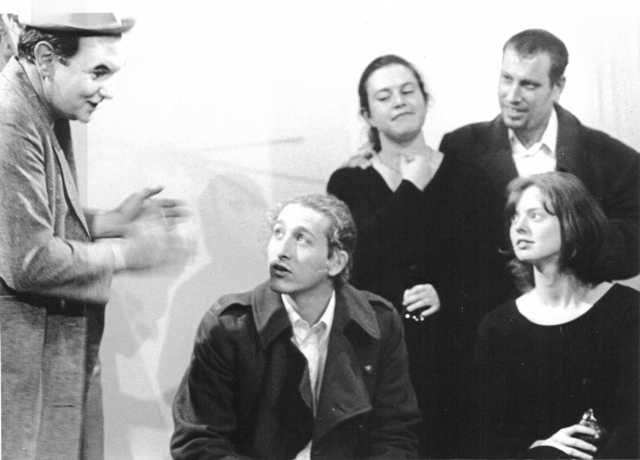The Bench Production
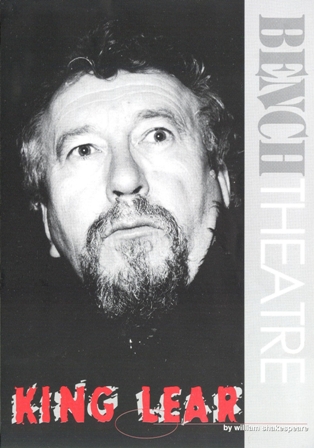
This play was staged at Havant Arts Centre, East Street Havant - Bench Theatre's home since 1977.
Characters
| King Lear | Peter Corrigan |
| Goneril | Sally Hartley |
| Regan | Debbie Money |
| Cordelia | Natasha Hancock |
| The Duke of Albany | Mark Wakeman |
| The Duke of Cornwall | Alan Welton |
| The King of France | Kevin Turvey |
| The Duke of Burgundy | Damon Wakelin |
| The Earl of Kent | John Scadding |
| The Earl of Gloucester | Pete Woodward |
| Edgar | Paul Davies |
| Edmund | Andrew Wright |
| Oswald | Nathan Chapman |
| Fool | David Penrose |
| Curan | Kevin Turvey |
| Doctor | Alan Welton |
| Gentlemen Knights Servants Messengers | John Blackmore Spencer Glanville Steve J Kevin Turvey David Penrose Damon Wakelin Alan Welton |
Crew
| Directors | Nathan Chapman Damon Wakelin |
| Stage Manager | Sam Emery |
| Assistant Stage Manager | Zoë Corrigan |
| Costume and Set Design and Realisation | Naomi Parsons Derek Callam Sam Emery Zoë Corrigan Sharman Callam |
| Lighting Design | Damon Wakelin |
| Lighting Operation | Stuart Monk |
| Publicity | Alice Corrigan |
| Fight Choreography | Brendon Burns |
| Musicians | Spencer Glanville Steve J |
| Handbill Design | Pete Woodward |
| Programme | Nathan Chapman |
| Front of House | Jacquie Penrose |
| Photography | Tim Taylor |
Director's Notes
King Lear is an immense piece of work dealing with immense issues. The question the play asks of its actors and producers are huge and troublesome, and its reputation precedes it. The popularity of the play, or at least the general familiarity with its story, is just one extra hurdle to jump, as one is constantly aware of the high expectations audiences will have. This is probably why it has taken us three months of rehearsal, two directors, nineteen actors and almost as many crew and designers to get to this stage.
With Shakespeare, the possibilities for design concepts and approach are limitless, and can give you the sense of treading water before you enter rehearsal. So how do you get to grips with a play of this stature? Well you could say we took the car mechanic's approach. We stripped the play down to its barest essentials, the essence of its appeal to us as individuals. On the most basic level, King Lear is a great story. That was our starting point, and we built it up from there from the chassis. Piece by piece, as the work started, the brilliance of the play revealed itself, through little conscious effort on anyone's part, and eventually King Lear began to direct us.
Actors were being drawn into their characters, listening to what they were saying, doing as they commanded, and it all seemed to be working. So we all stopped trying to be clever, stopped trying to shoe-horn this play in to an ill-fitting design concept, stopped trying to steer the Titanic towards a thematic iceberg. The play itself, no convolution or shift of emphasis, no favouring one idea over another, could possibly do it justice.
King Lear is a play. King Lear is a man. An old man who used to be great, going mad in a raging storm with only a fool, a mad beggar and a servant with dog-like loyalty for company. Lear's downfall came about because through the flaws in his character, and the flaws in others. Because King Lear the man is only human, and that is how we treated King Lear the play. The body of work is a reflection of the human body, with all its delights, flaws, glory and tantrums. It is dealing with the most human topics, and we strove to make this production as human as we could.
Nathan Chapman and Damon Wakelin
Reviews
The News
Colossal undertaking succeeds
Shakespeare's second greatest play (after Hamlet) is a colossal undertaking for any amateur company, and Bench Theatre emerge with credit, Directors Nathan Chapman and Damon Wakelin play it blessedly straight, with unobtrusively modern dress and a spartan set making clever use of a single piece of furniture as a throne, stocks and hovel. The effect is to throw the major issues of family and foolery, pride and degradation into sharp focus - with the help of several individual performances of striking quality.
Peter Corrigan plays Lear with courage and bravura. Just occasionally his speech seems mannered but he knows when to bellow and when to whisper, and encompasses the character's majesty, wrath, humiliation and madness. No less impressive are David Penrose as the bitterly wise Fool, utterly relaxed in his cavorting, and Sally Hartley as Goneril. She not only speaks her lines beautifully but shows how a glance or a sly smile can so the work of 100 words.
Also effective are Alan Welton's casually cruel Cornwall and John Scadding's Kent, whose unusual aggressiveness makes his final sad speech all the more touching. Much of the other characterisation is sketchy and the speaking dull, But the poetry and passion make their mark.
The News, 23rd April 1999
